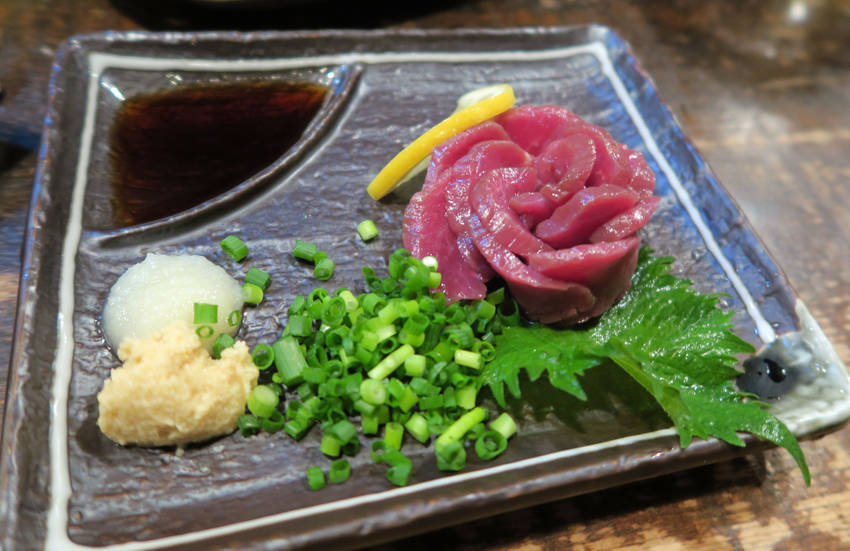Basashi wa “baniku no sashimi” no ryakushō de ari, uma no niku o usuku kitte nama de taberu Nippon ryōri no koto desu. Baniku wa gyūniku ya butaniku toitta kachiku to kuraberu to taion ga takaku 40 do hodo ari, zakkin ga zōshokushi nikui toiu riyū de, nama de taberareru no desu. Shokukan ya amami wa taberu bui niyotte kotonaru sō desu.
“Basashi,” short for “horse meat sashimi,” is a Japanese dish made of thinly sliced raw horse meat. Horse meat can be eaten raw because its body temperature is higher than that of livestock such as beef and pork, at about 40 degrees Celsius, which makes it less prone to the growth of bacteria. The texture and sweetness of the meat varies depending on which part of the horse is eaten.
sign up for the Japanese-Online Newsletter
__..-・**・-..__..-・**・-.._ あいうえお かきくけこ さしすせそ たちつてと なにぬねの はひふへほ まみむめも やいゆえよ らりるれろ わゐうゑを ん __..-・**・-..__..-・**・-.._
#JapaneseOnline #LearningJapanese #FreeJapaneseLessons #JapaneseVideoLearning #JapaneseAnime #Anime #JapaneseFood #Bloguru

